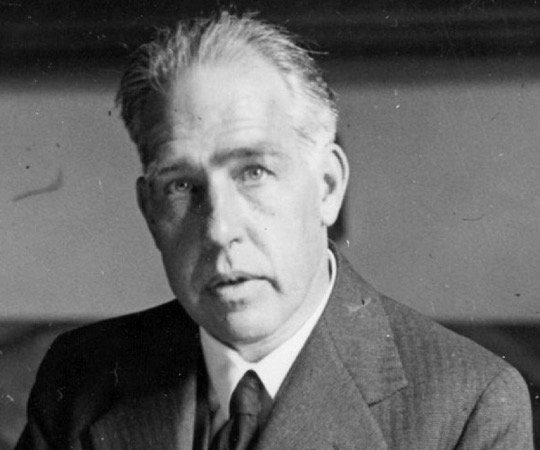Niels Bohr, the renowned Danish physicist, played a significant role in the development of the atomic bomb through his involvement in the Manhattan Project. Bohr’s contributions were primarily in the realm of scientific consultation and international diplomacy surrounding nuclear weapons.
In 1939, shortly before the outbreak of World War II, Bohr visited the United States and met with various scientists, including J. Robert Oppenheimer, who would later lead the Manhattan Project. During this visit, Bohr shared his insights on nuclear fission, a crucial scientific breakthrough for the understanding of atomic energy.
Bohr’s most notable contribution to the atomic bomb project came through his collaboration with the British and American scientists. In 1943, Bohr was brought into the inner circle of the Manhattan Project, where he worked closely with Oppenheimer and other physicists, providing valuable insights and guidance.
One of Bohr’s key contributions was his involvement in discussions regarding the potential military applications of atomic energy and the ethical implications of nuclear weapons. He engaged in extensive debates with other scientists, including Winston Churchill and President Franklin D. Roosevelt, urging them to consider the consequences of using such powerful weapons and advocating for international cooperation to control nuclear technology.
Bohr’s involvement in the Manhattan Project also led to a significant incident known as the “Bohr-Einstein debates.” Albert Einstein and Bohr had divergent views on the moral and practical aspects of nuclear weapons. Einstein, concerned about the destructive power of atomic bombs, sent a letter to President Roosevelt expressing his reservations. Bohr, on the other hand, believed in the importance of open dialogue and international collaboration to prevent nuclear catastrophe.
After the war, Bohr continued his advocacy for nuclear disarmament and peaceful uses of atomic energy. He played a key role in establishing the United Nations’ International Atomic Energy Agency (IAEA), which aimed to promote the peaceful development of nuclear technology and prevent the proliferation of nuclear weapons.
Overall, Bohr’s role in the atomic bomb was primarily that of a scientific consultant and a voice for international cooperation and ethical considerations. His insights and diplomatic efforts contributed to the broader discussions surrounding nuclear weapons and set the stage for ongoing debates about the responsible use of atomic energy.
